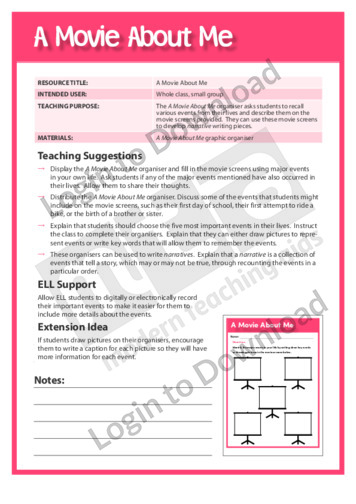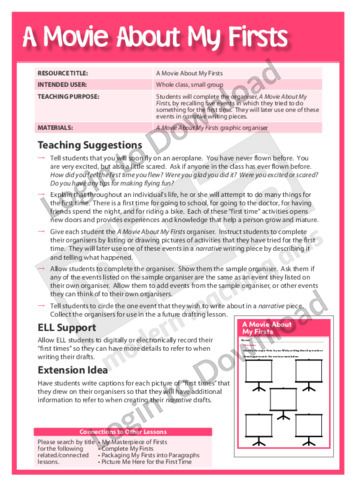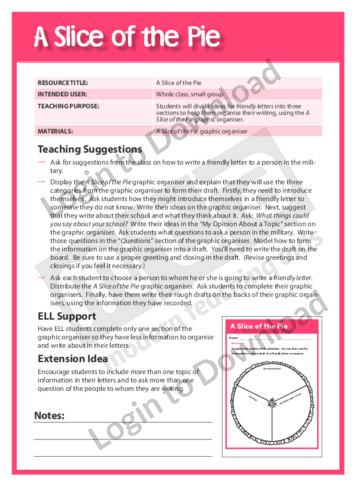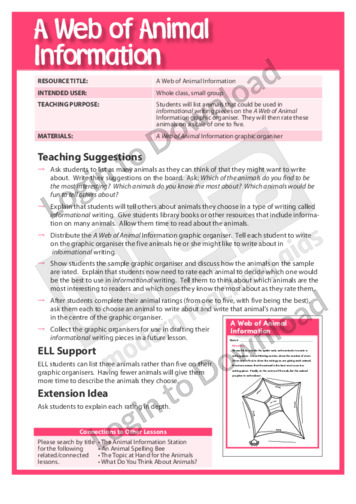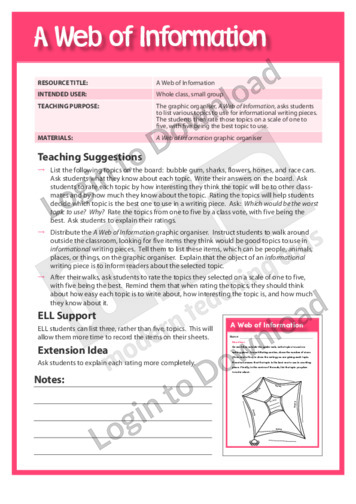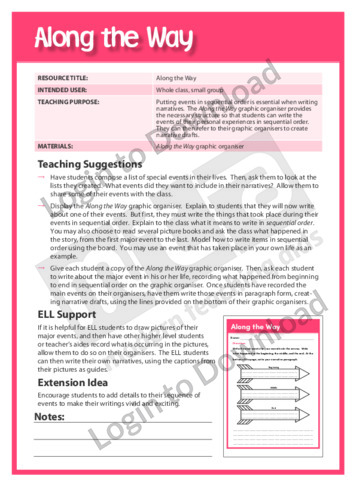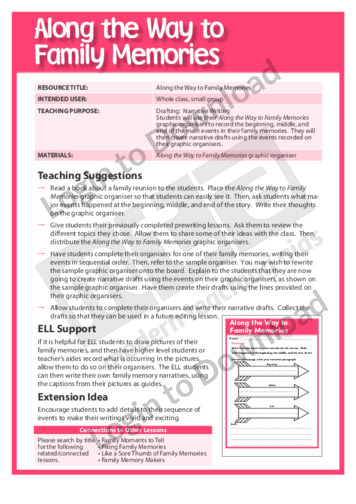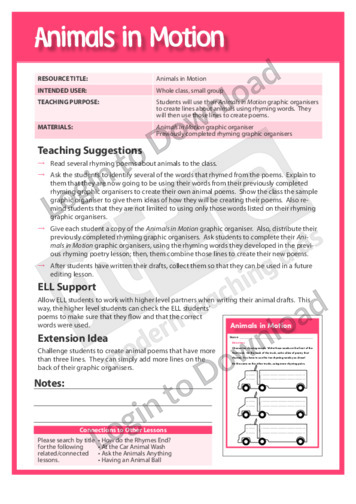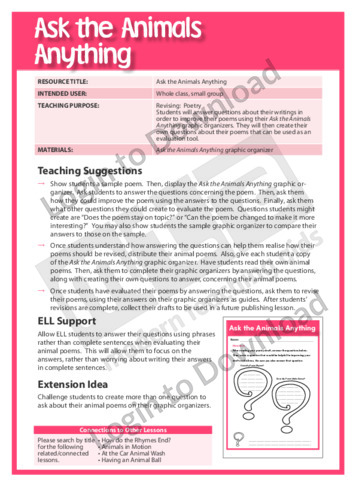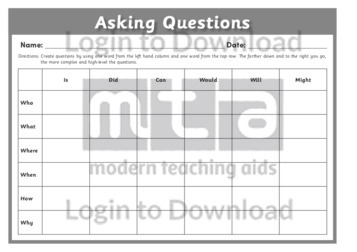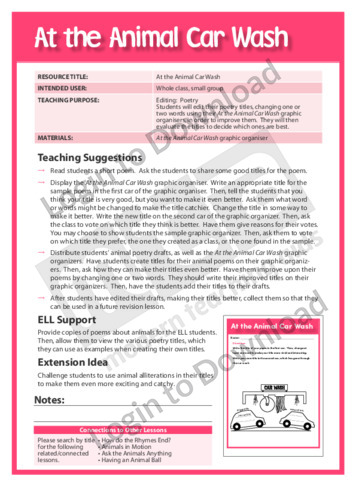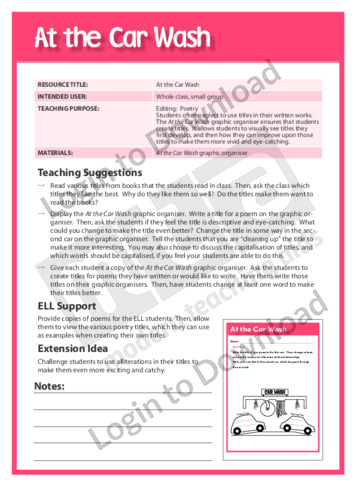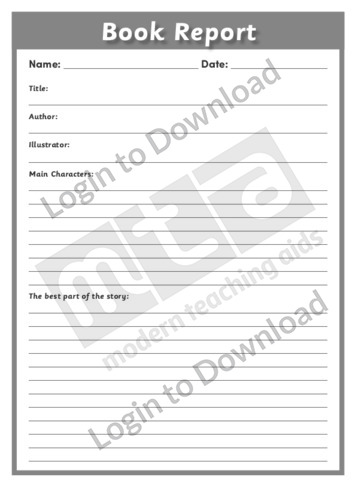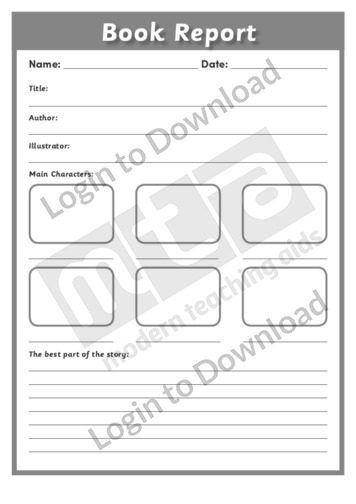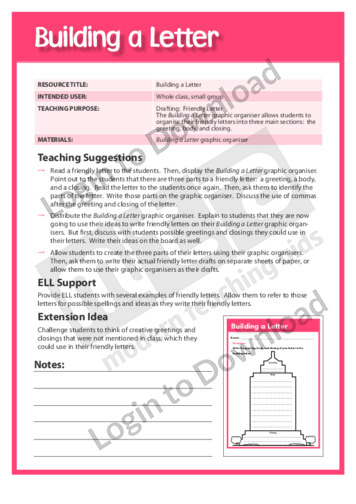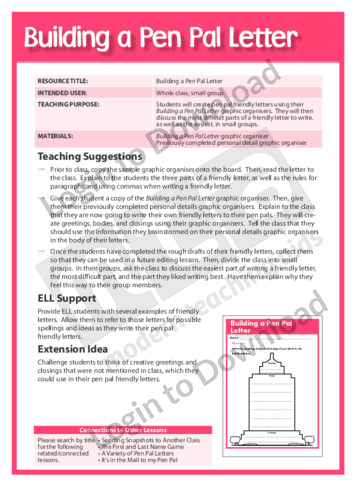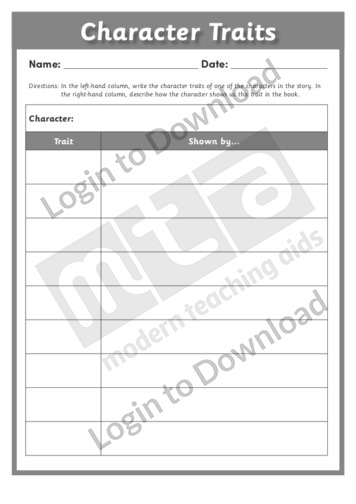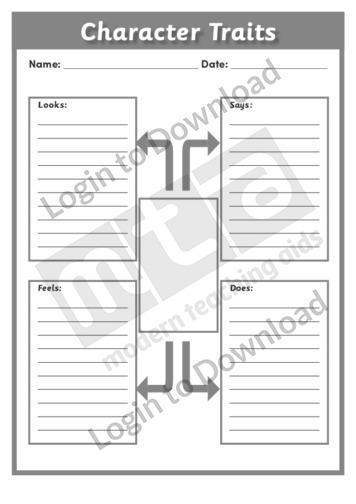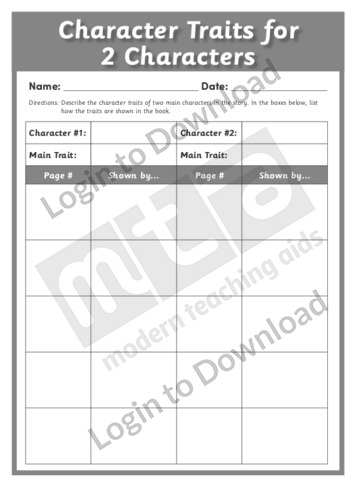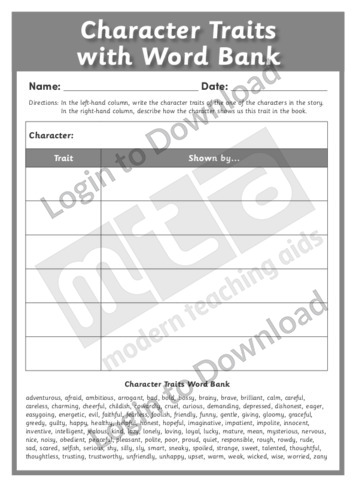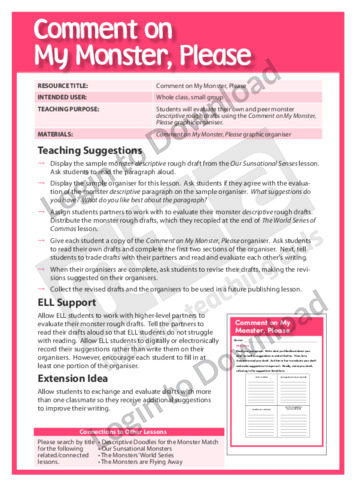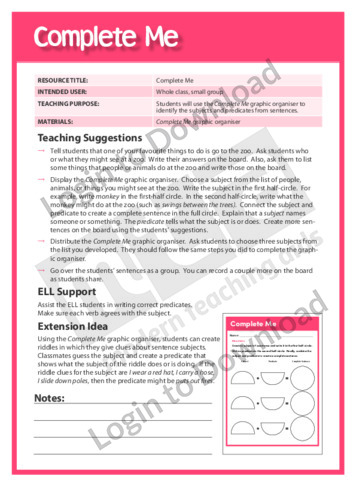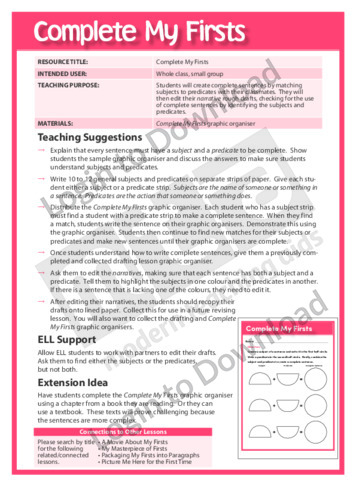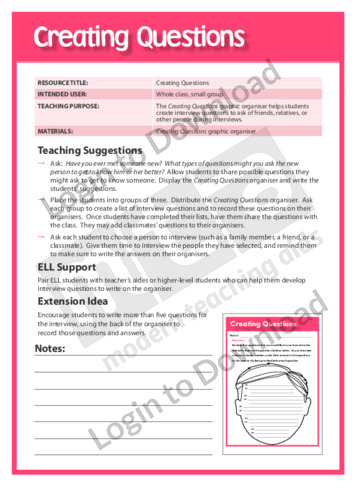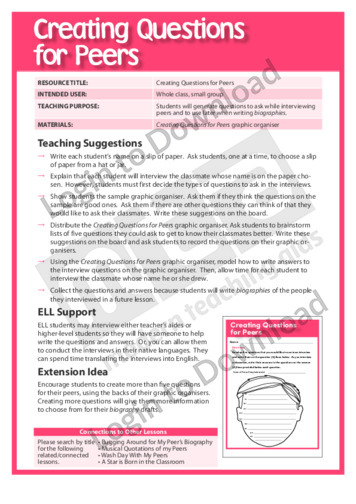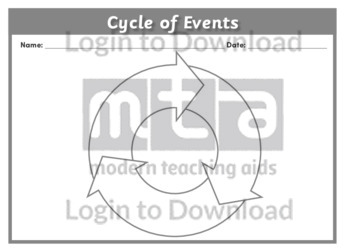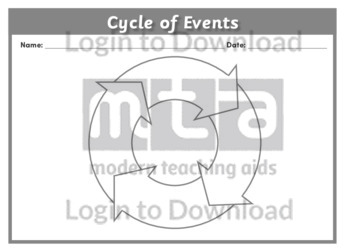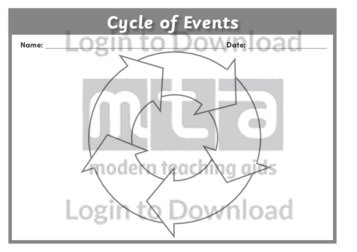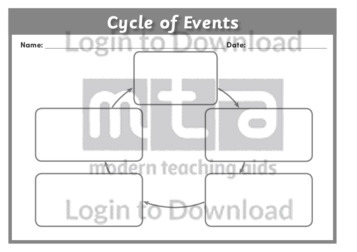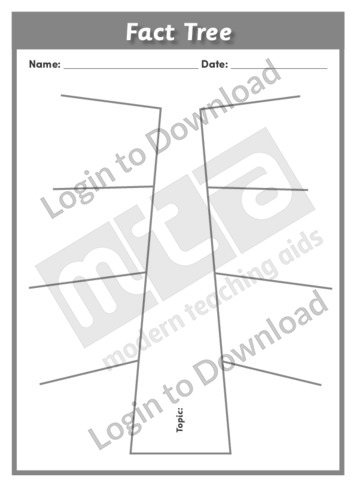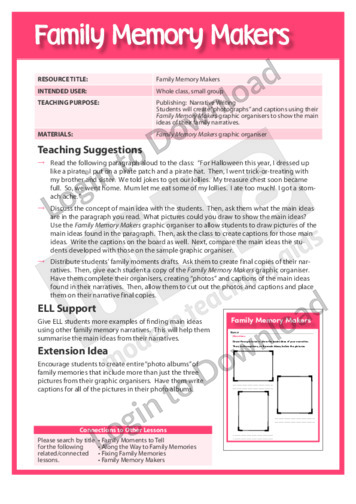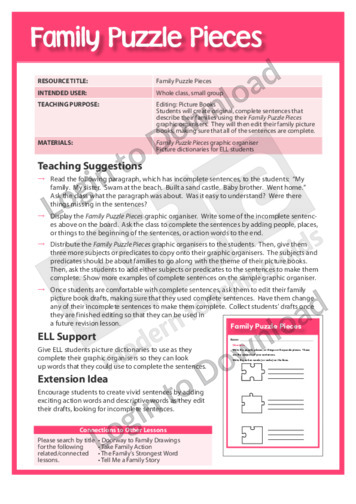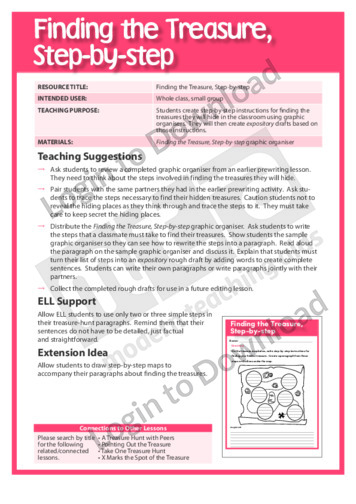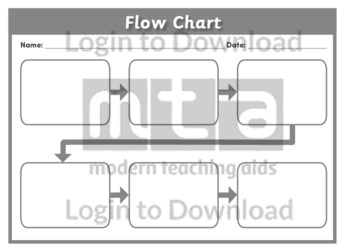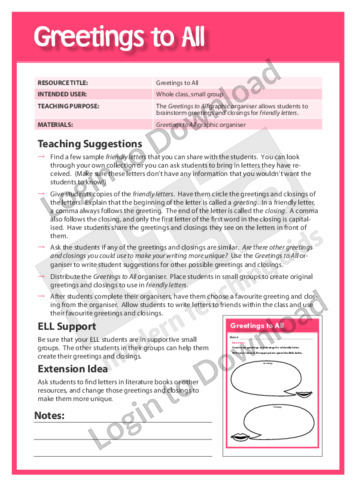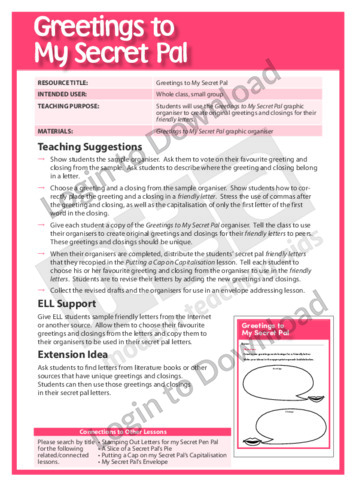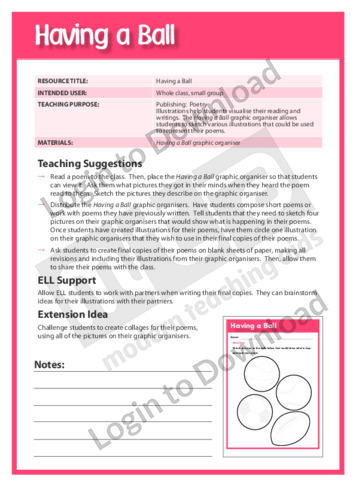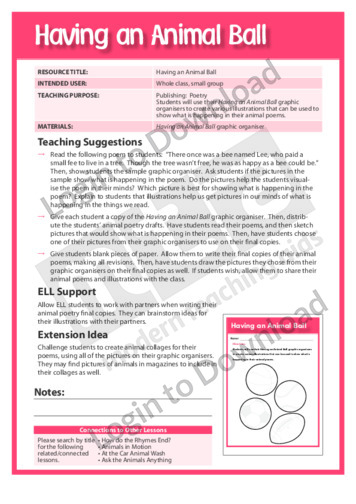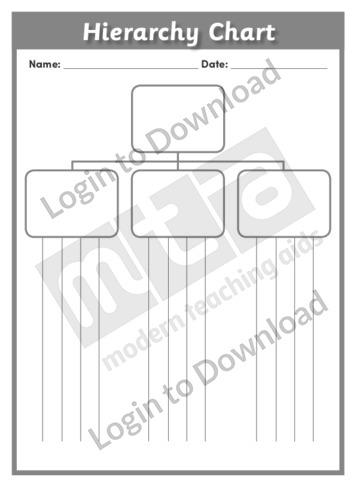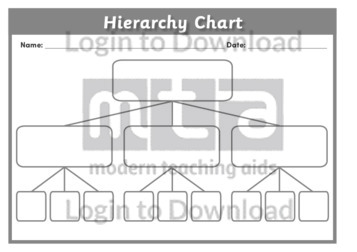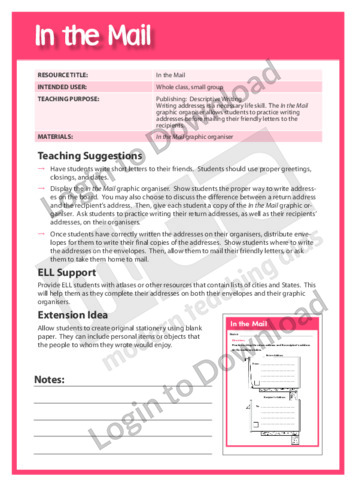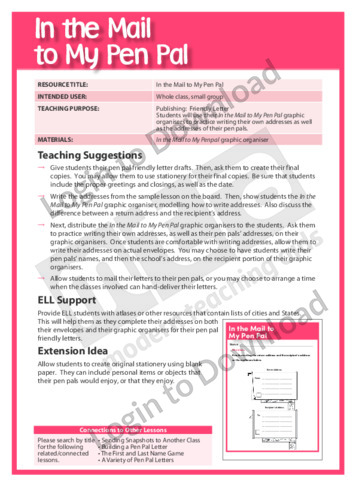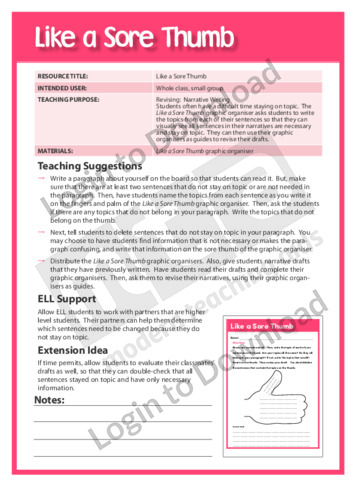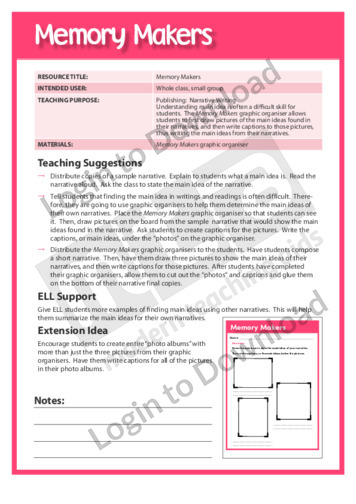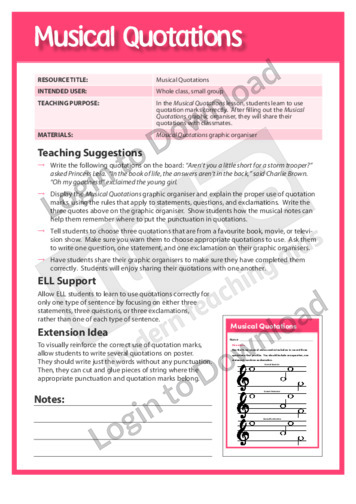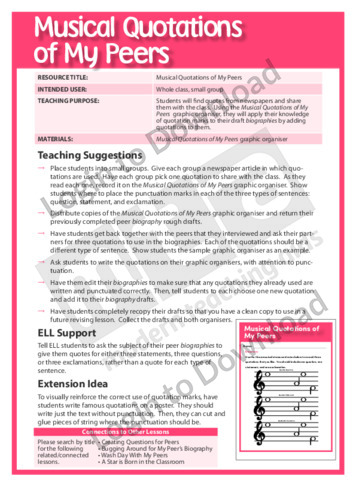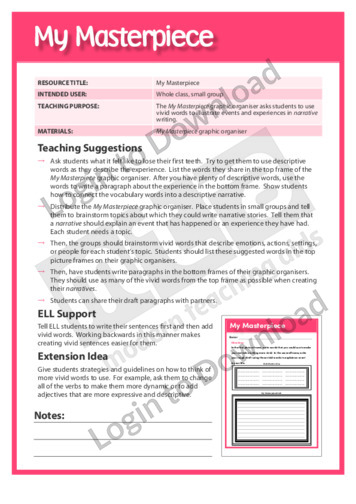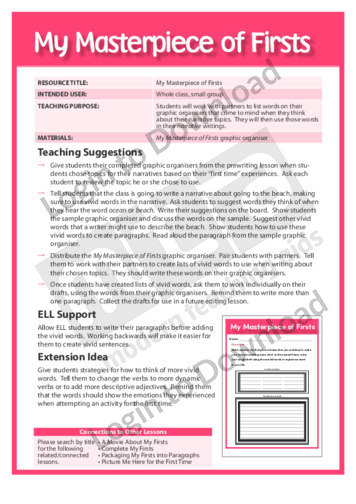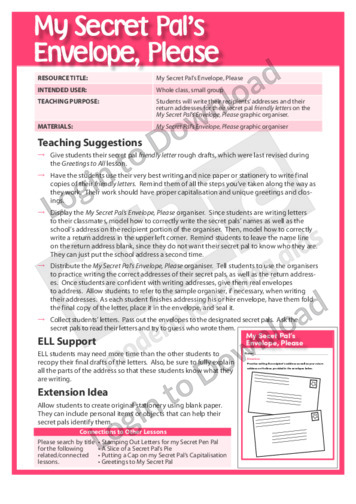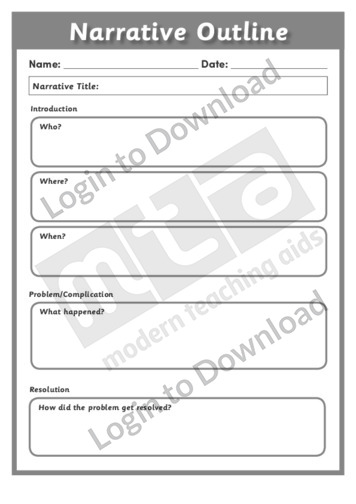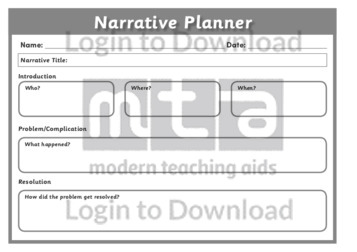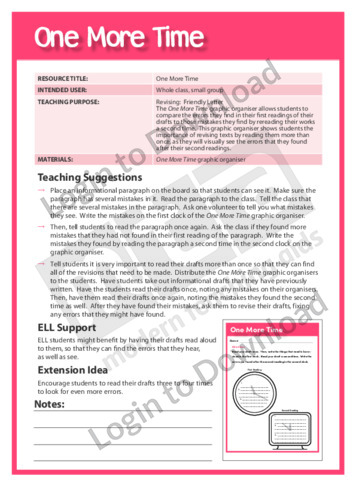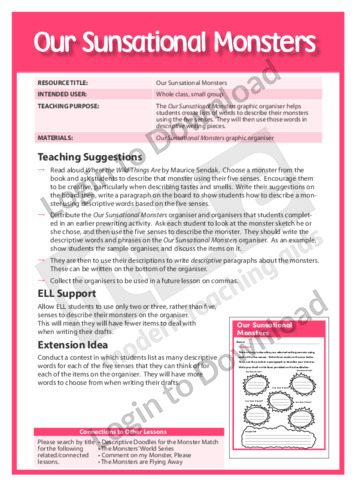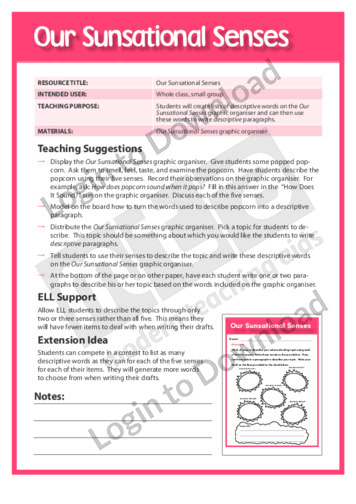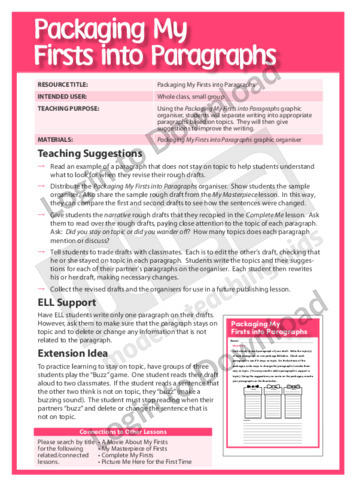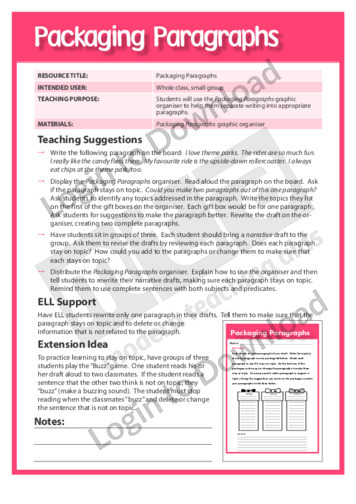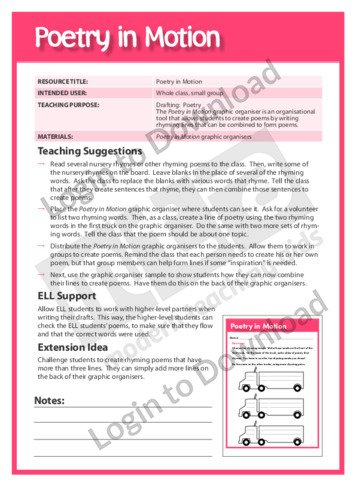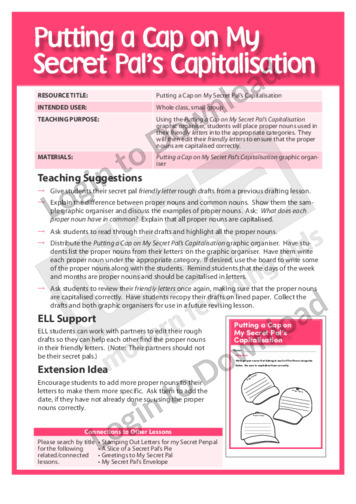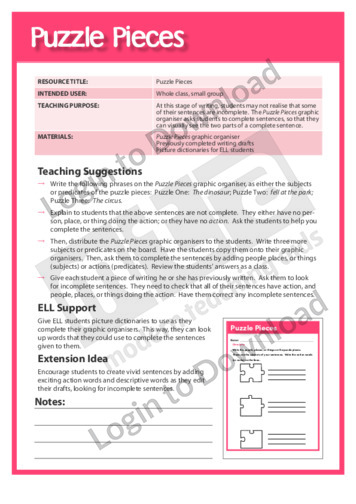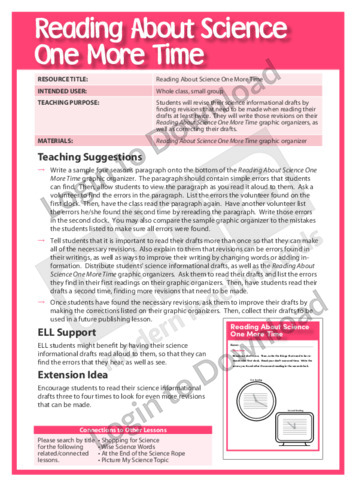This graphic organiser, ‘A Movie About Me’ supports students in planning autobiographical writing using prewriting strategies.
This graphic organiser, ‘A Movie About My Firsts’ supports students in planning writing using prewriting strategies, writing about their first time doing things.
This graphic organiser, ‘A Slice of the Pie’ supports students in planning writing using prewriting strategies to structure ideas for a friendly letter.
This graphic organiser, ‘A Web of Animal Information’ supports students in planning writing by brainstorming animals that could be used in informational writing.
This graphic organiser, ‘A Web of Information’ supports students in planning writing through brainstorming topics for informational writing.
This graphic organiser, ‘Along the Way’ supports students in recalling and organising information in sequential order and gives them the opportunity to draft a narrative text.
This graphic organiser, ‘Along the Way to Family Memories’ supports students in recalling and organising information in sequential order and gives them the opportunity to draft a piece of writing based on family memories.
This graphic organiser, ‘Animals in Motion’ supports students in creating poems about animals by combining rhyming words and sentences.
This graphic organiser, ‘Ask the Animals Anything’ provides students with the opportunity to answer questions and evaluate their animal draft poems.
This graphic organiser, ‘Asking Questions’ prompts students to create questions using one word from the left column and one word from the top row. It is a great resource that assists students in creating progressively more complex, higher-order questions when analysing texts. It can also be used by teachers to develop questions that are targeted …More
This graphic organiser, ‘At the Animal Car Wash ‘supports students in editing and revising their writing by developing titles for their animal poems.
This graphic organiser, ‘At the Car Wash’ supports students in editing and revising their writing by developing titles for their poems.
This graphic organiser, ‘Book Report’ guides students through the process of writing a report on a fictional or non-fictional book. Book reports can be challenging as they require students to use higher-order thinking skills whilst critically evaluating the text. Using this resources will prompt students to correctly structure their report when organising and planning ideas …More
This graphic organiser, ‘Book Report’ guides students through the process of writing a report on a fictional or non-fictional book. Book reports can be challenging as they require students to use higher-order thinking skills whilst critically evaluating the text. Using this resources will prompt students to correctly structure their report when organising and planning ideas …More
This graphic organiser, ‘Building A Letter’ supports students in planning and structuring a friendly letter.
This graphic organiser, ‘Building a Pen Pal Letter’ supports students in planning and structuring a friendly letter to a pen pal.
This graphic organiser, ‘Character Traits’ provides students with the opportunity to explore specific qualities of a fictional or non-fictional character, and explain how these traits are shown through the text. This table can be used during post-reading, whole class discussions or individually as a comprehension activity that encourages critical reflection and justification of opinions.
This graphic organiser, ‘Character Traits’ provides students with the opportunity to mind map and brainstorm specific character qualities including their appearance, speech, feelings and actions. Use this during post-reading, whole class discussions as a comprehension activity or when individually organising ideas to be used when writing about characters in creative stories.
This graphic organiser, ‘Character Traits for 2 Characters’ provides students with the opportunity to explore specific qualities of two fictional or non-fictional characters, and explain how their traits are shown through the text. This table can be used during post-reading, whole class discussions or individually as a comprehension activity that encourages critical reflection and justification …More
This graphic organiser, ‘Character Traits with Word Bank ‘ provides students with the opportunity to explore specific qualities of a fictional or non-fictional character, and explain how these traits are shown through the text. This table can be used during post-reading, whole class discussions or individually as a comprehension activity that encourages critical reflection and …More
This graphic organiser, ‘Comment on My Monster, Please’ supports students in editing and revising their descriptive monster writing through peer review and feedback.
This graphic organiser, ‘Complete Me’ asks students to identify the subject and predicates within sentences.
This graphic organiser, ‘Complete My Firsts’ supports students in matching subjects and predicates and then to review their draft writing, focusing on subjects and predicates to ensure complete sentences.
This graphic organiser, ‘Creating Questions’ supports students in planning writing using prewriting strategies to create questions for an interview.
This graphic organiser, ‘Creating Questions for Peers’ supports students in planning writing, using prewriting strategies to create questions for interviewing peers.
This graphic organiser, ‘Cycle of Events’ is a great scaffold for students in understanding how a series of 3 events are linked continuously throughout a cycle. This process is important when examining concepts such as the water cycle or life cycles of animals where there is no beginning or end. Through using this diagram students …More
This graphic organiser, ‘Cycle of Events’ is a great scaffold for students in understanding how a series of 4 events are linked continuously throughout a cycle. This process is important when examining concepts such as the water cycle or life cycles of animals where there is no beginning or end. Through using this diagram students …More
This graphic organiser, ‘Cycle of Events’ is a great scaffold for students in understanding how a series of 5 events are linked continuously throughout a cycle. This process is important when examining concepts such as the water cycle or life cycles of animals where there is no beginning or end. Through using this diagram students …More
This graphic organiser, ‘Cycle of Events’ is a great scaffold for students in understanding how a series of 5 events are linked continuously throughout a cycle. This process is important when examining concepts such as the water cycle or life cycles of animals where there is no beginning or end. Through using this diagram students …More
This graphic organiser, ‘Fact Tree’ provides a blank diagram where the trunk represents the central concept and the branches can be used to brainstorm related information. This is a great pre-writing resource when organising and expanding upon ideas and can be used effectively in groups, as a whole class or for individual work. Exploring more …More
This graphic organiser, ‘Family Memory Makers’ supports students in identifying the main idea from their family picture books.
This graphic organiser, ‘Family Puzzle Pieces’ supports students in developing their writing skills and structuring complete sentences about their families.
This graphic organiser, ‘Finding the Treasure Step-by-Step’ asks students to record the sequence of steps for finding a treasure.
This graphic organiser, ‘Flow Chart’ combines skills in brainstorming and mind mapping to visually represent the relationship between sequential events. It can be used as a pre-writing task, to logically organise ideas, or a post-reading comprehension activity.
This graphic organiser, ‘Greetings to All’ supports students in developing their writing skills by brainstorming greetings and closings for friendly letter writing.
This graphic organiser, ‘Greetings to My Secret Pal’ supports students in developing their writing skills by brainstorming greetings and closings for their secret pal letters.
This graphic organiser, ‘Having a Ball’ provides students the opportunity to edit and publish their written work.
This graphic organiser, ‘Having an Animal Ball’ provides students the opportunity to edit and publish their animal poems.
This graphic organiser, ‘Hierarchy Chart’ is an upside-down tree diagram used to organise the flow of ideas into a top down format. For example, students can use this graphical scaffold to break down a broad concept into greater detail. The hierarchy chart is a great resource for post-reading comprehension activities or as a pre-writing prompt …More
This graphic organiser, ‘Hierarchy Chart’ is an upside-down tree diagram used to organise the flow of ideas into a top down format. For example, students can use this graphical scaffold to break down a broad concept into greater detail. The hierarchy chart is a great resource for post-reading comprehension activities or as a pre-writing prompt …More
This graphic organiser, ‘In the Mail’ provides the opportunity for students to practise writing short letters and addresses.
This graphic organiser, ‘In the Mail to My Pen Pal’ provides the opportunity for students to practise writing short letters and addresses to their pen pals.
This graphic organiser, ‘Like a Sore Thumb’ supports students in editing and revising their writing, ensuring that they are staying on topic.
This graphic organiser, ‘Memory Makers’ supports students in identifying the main idea of a narrative text.
This graphic organiser, ‘Musical Quotations’ supports students in editing and revising their writing, focusing on the correct use of quotation marks.
This graphic organiser, ‘Musical Quotations of My Peer’ supports students in editing and revising their writing about a peer, focusing on the correct use of quotation marks.
This graphic organiser, ‘My Masterpiece’ supports students in editing and revising their written work.
This graphic organiser, ‘My Masterpiece of Firsts’ supports students in editing and revising their draft about their first time doing things.
This graphic organiser, ‘My Secret Pal’s Envelope, Please’ provides the opportunity for students to practise writing addresses for letters to their secret pals.
This graphic organiser, ‘Narrative Outline’ is a great resource to model the structure of a narrative. Students are prompted to identify the title of the narrative, outline the introduction including the characters, setting and time, discuss the problem of the story and conclude with the resolution. This blank graphical scaffold can be used during a …More
This graphic organiser, ‘Narrative Planner’ is a great resource to model the structure of a narrative. Students are prompted to identify the title of the narrative, outline the introduction including the characters, setting and time, discuss the problem of the story and conclude with the resolution. This blank graphical scaffold can be used during a …More
This graphic organiser, ‘One More Time’ supports students in editing and revising by re-reading and reviewing their draft writing.
This graphic organiser, ‘Our Sunsational Monsters’ supports students in developing their writing skills by creating lists of descriptive words about monsters.
This graphic organiser, ‘Our Sunsational Senses’ supports students in developing their writing skills by creating lists of descriptive words.
This graphic organiser, ‘Packaging My Firsts into Paragraphs’ supports students in developing their writing skills, focusing on topic sentences and paragraph structure of their draft writing.
This graphic organiser, ‘Packaging Paragraphs’ supports students in developing their writing skills, focusing on topic sentences and paragraph structure.
This graphic organiser, ‘Poetry in Motion’ supports students in creating poems by combining rhyming words and sentences.
This graphic organiser, ‘Putting a Cap on My Secret Pal’s Capitalisation’ provides students with the opportunity to identify and categorise proper nouns in their draft letter writing.
This graphic organiser, ‘Puzzle Pieces’ supports students in developing their writing skills and structuring complete sentences.
This graphic organiser, ‘Reading About Science One More Time’ supports students in editing and revising by re-reading and reviewing their science writing.
It�s that easy!

